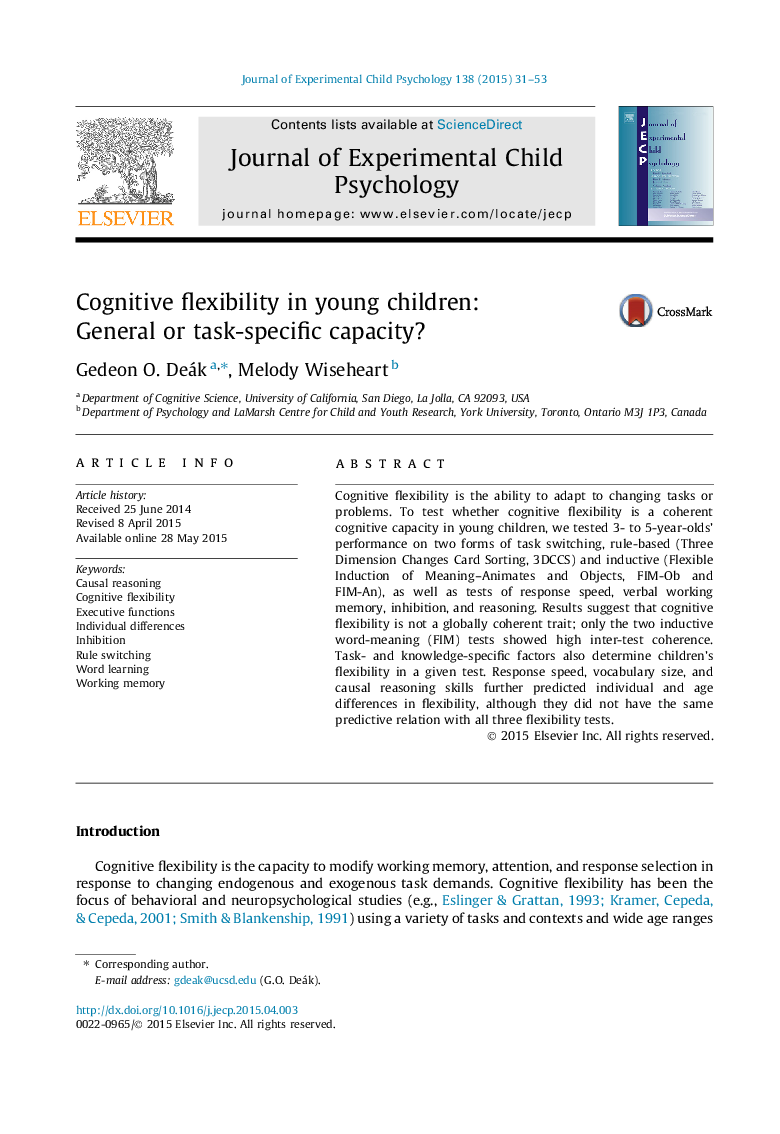| کد مقاله | کد نشریه | سال انتشار | مقاله انگلیسی | نسخه تمام متن |
|---|---|---|---|---|
| 917937 | 1473474 | 2015 | 23 صفحه PDF | دانلود رایگان |
• Preschool children showed varying levels and patterns of cognitive flexibility across three standard tests.
• Children showed similar flexibility in two tests of inductive word-learning, but less similarity in a test of rule-switching.
• Flexibility was predicted by variables including vocabulary, verbal inhibition, response speed, and abstract reasoning.
Cognitive flexibility is the ability to adapt to changing tasks or problems. To test whether cognitive flexibility is a coherent cognitive capacity in young children, we tested 3- to 5-year-olds’ performance on two forms of task switching, rule-based (Three Dimension Changes Card Sorting, 3DCCS) and inductive (Flexible Induction of Meaning–Animates and Objects, FIM-Ob and FIM-An), as well as tests of response speed, verbal working memory, inhibition, and reasoning. Results suggest that cognitive flexibility is not a globally coherent trait; only the two inductive word-meaning (FIM) tests showed high inter-test coherence. Task- and knowledge-specific factors also determine children’s flexibility in a given test. Response speed, vocabulary size, and causal reasoning skills further predicted individual and age differences in flexibility, although they did not have the same predictive relation with all three flexibility tests.
Journal: Journal of Experimental Child Psychology - Volume 138, October 2015, Pages 31–53
